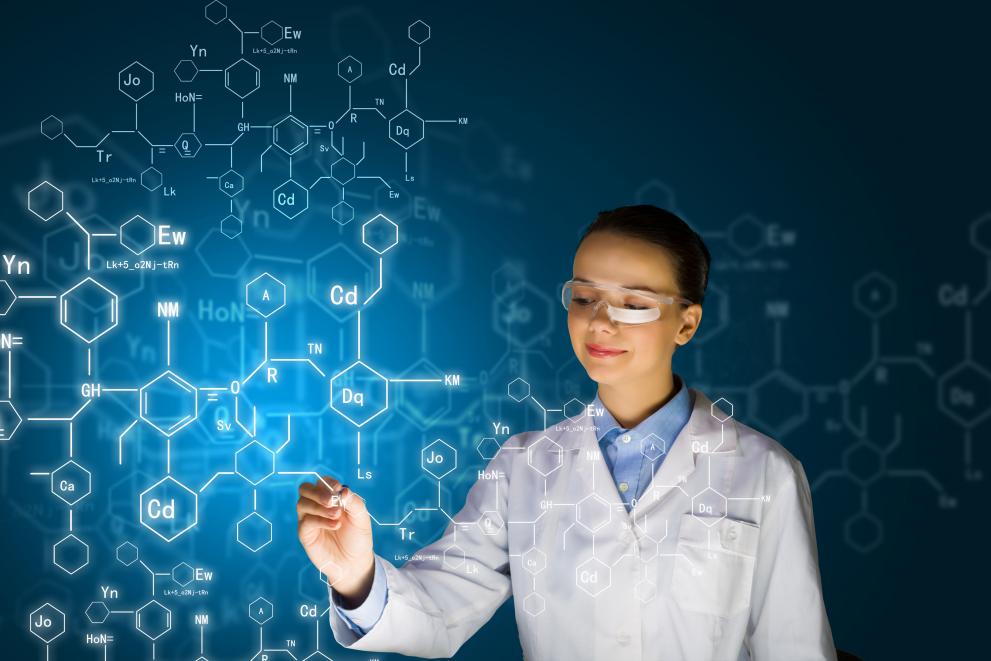
At the JRC, we have been working to improve gender equality in science.
Last year, women represented 35% of our staff, 18% of our managers and 50% of our senior managers.
International Women's Day is – for us and many others –a reminder that while progress is being made, there is still work to do. Less than 30% of researchers worldwide are women.
But it's also a good time to reflect on some of our own remarkable women and their key roles in producing science for effective EU policies.
Take Lois Brett for example. She leads the JRC's energy storage project, which supports the development of innovative new technologies vital for Europe's energy transition.
This includes research into new battery technologies for electric vehicles, and energy storage applications to help maximise renewable energy's integration into the power grid.
Also in the energy sphere, Aliki Georgakaki leads the JRC's work on energy research, innovation and competitiveness.
Together with her team she manages the knowledge necessary to ensure that the Energy Union keeps the EU at the forefront of renewable energy production, clean energy technologies, and the fight against global warming.
In the field of economics and finance, Francesca Campolongo heads a Unit which, in addition to producing leading research, manages a community of practice connecting academic experts and policymakers to tackle EU policy priorities like financial stability, Banking Union and capital markets.
Margherita Bacigalupo leads research on entrepreneurship as a key competence for lifelong learning, building a framework to bridge the gap between education and work and maximise entrepreneurial capacity in Europe.
Women in science
We asked our women researchers what drove them to get into science.
"I decided to be a scientist when I was a teenager simply because I wanted to save the world. I know it may sound a little naïve", says Apollonia Miola, a JRC project leader working on the EU's implementation of the Sustainable Development Goals , "but I found my way to help save the world by studying energy and environmental economics."
JRC physicist Luisa Marelli, who leads research on sustainable biofuels and bioenergy, says "I decided to become a scientist when I was still in high school, driven by my passion for nature, the environment, the mysteries of the universe… and that's how I decided to study physics."
Initially with inquisitive minds eager to discover and help solve the world's problems, our women scientists have seen how their work has a direct impact on EU policies and citizens' lives.
Apollonia continues, "I have had the opportunity to contribute to important global agreements like the Kyoto Protocol and the Paris Agreement by developing analytical tools and identifying countries most vulnerable to the impacts of climate change."
Tévécia Ronzon, whose research focuses on the bioeconomy, says "In collaboration with an external partner, we developed a methodology to estimate the jobs and wealth created by the bioeconomy in Europe and the Member States. This was central to the first JRC bioeconomy report, which informed discussions on the European Commission's bioeconomy strategy".
In terms of job satisfaction, how do our women scientists feel about doing science for policy?
On her environmental science research, Luisa says "the thing that has always made me proud is the awareness of working on something really useful to improve the quality of our life and the environment. My work has given me the opportunity to be at the centre of important political decisions that have an impact on our future, with the awareness that science, thanks to our work, has played an important role in these decisions".
Greet Janssens-Maenhout, who conducts research tracking global emissions, says "not only policy makers but also citizens should benefit from the huge amount of dynamic information and tools we have developed to track emissions at any place and time. I hope that this helps bringing us towards a climate dialogue with an informed audience."
Apollonia concludes: "supporting global efforts to improve the lives of present and future generations, within a framework of equity, inclusion and sustainability, gives me the most exciting opportunity as a scientist because I can help change the future and build a new vision of the world".
You can read more about the EU's progress towards gender equality in the European Commission's joint statement on the occasion of International Women's Day 2018.
The European Commission's department for justice, consumer rights and gender equality have published the 2018 Annual Report on Gender Equality, which takes stock of the main initiatives launched or accomplished throughout the past year to promote gender equality in the EU.
Details
- Publication date
- 8 March 2018
